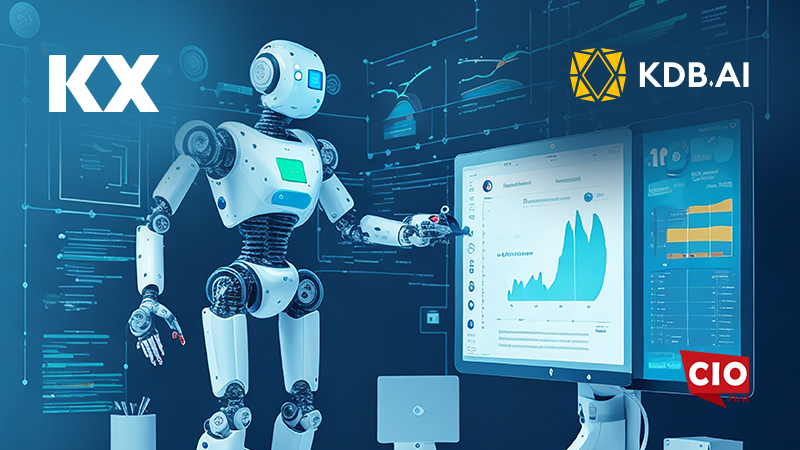KX, a global leader in vector-based and time-series data management, has announced the integration of its vector database KDB.AI with LlamaIndex, an open-source framework that streamlines the ingestion, storage, and retrieval of datasets for Retrieval-Augmented Generation (RAG) applications. This collaboration empowers developers to augment Large Language Models (LLMs) with contextually accurate information, and in turn, provide more precise and relevant responses to end user queries.
“We are thrilled to be working with KX to streamline the development of RAG-enabled LLM applications,” said Jerry Liu, Co-founder/CEO of LlamaIndex. “KX has the profound ability to generate, store and run similarity searches quickly, efficiently and in real-time. This integration with KDB.AI is enabling us to make accurate, relevant and simplified AI applications more accessible to developers and allow for organizations to successfully continue their AI adoption journeys.”
Because of a lack of time-oriented data being fed into LLMs, they often have limitations in the quality of the information they can provide, resulting in outdated insights and contributing to hallucinations. Combining the capabilities of RAG and the availability of time-oriented data can alleviate these challenges and enhance LLM performance with real-time external data, significantly improving response quality and contextual relevance.
Also Read: Appen Launches Solution for Enterprises to Customize Large Language Models (LLMs)
KDB.AI is a highly-performant, scalable, vector database for time-orientated generative AI and contextual search. When integrated with LlamaIndex, KDB.AI simplifies the process of building sophisticated RAG applications for developers and ultimately improves the accuracy of their LLM’s responses. By combining LlamaIndex and KDB.AI, developers can leverage the power of RAG solutions for a variety of applications, such as:
- Document Q&A: LlamaIndex ingests and indexes unstructured data sources, converting them to vector embeddings which KDB.AI stores and queries at scale, using natural language queries. This increases speed and accuracy for answers to users’ questions.
- Data Augmented Chatbots: LlamaIndex connects and structures semi-structured data sources which KDB.AI searches and ranks based on the user’s input and the chatbot’s context. This enhances a chatbot’s capabilities and provides more personalized and engaging conversations to users.
- Knowledge Agents: LlamaIndex indexes knowledge bases and tasks which KDB.AI can store and query the vector embeddings, using natural language commands. This creates automated decision machines that perform tasks based on the user’s inputs.
- Structured Analytics: LlamaIndex ingests and indexes structured data sources that KDB.AI searches and ranks the relevant data rows or columns based on users’ natural language query. This provides easy and intuitive access to data analytics, without requiring users to learn complex syntax or tools.
- Content Generation: LlamaIndex ingests and indexes existing content sources which KDB.AI searches and ranks the most similar or relevant content items based on the user’s input or topic. This generates new and original content using the LLM’s generation capabilities.
“KX’s integration with LlamaIndex is another way that we’re working to make KX’s technology support the entire ecosystem of generative AI as part of our continued commitment to enhancing the developer experience and helping more enterprises become AI-first,” said Ashok Reddy, CEO of KX. “There is no other vector database on the market like KX. We are optimized for large volumes of data and complex analytical queries which is why our speed for performing similarity searches is so impressive. By combining our high-performance vector database capabilities with LlamaIndex’s streamlined data framework, we are helping revolutionize the way AI applications are put into production.”
SOURCE: BusinessWire


























